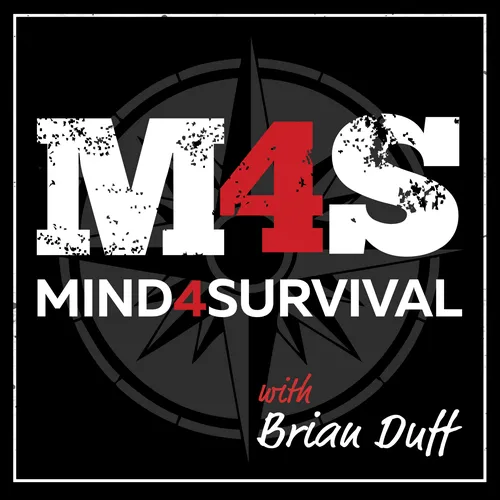Top 7 Things People Must Have to Survive in Any Situation
- Author
- [email protected] (Brian Duff)
- Published
- Sat 22 Mar 2025
- Episode Link
- https://mind4survival.com/things-people-must-have-to-survive/
You didn’t see it coming. One minute, you're grabbing coffee and heading to the store. The next, your phone lights up with alerts—texts, warnings, calls.
That disaster you’ve been quietly worrying about? It’s no longer a possibility. It’s happening. Right now. And people are counting on you to respond, not freeze.
Your heart races. Mind floods. “What do I do?” That question isn't hypothetical anymore.
What happens next depends on what you’ve already done.
Prepared people don’t wait until they’re in the middle of chaos to figure it out. They think through the hard stuff ahead of time. They gain clarity when others lose it. They build skills, gather what matters, and develop the mindset to make decisions when it counts most.
And when life goes sideways, they don’t panic. They act with calm, capable purpose.
This article breaks down the seven things you actually need to survive—not just the gear, but the mindset, skills, and strategies that keep you effective when it matters most.
If you’ve ever asked, “What do I really need to get through the worst?”—this is your answer.
(Disclaimer: This article contains affiliate links for which I may receive a small commission at no cost to you if you choose to purchase a product through a link on this page.)
TL;DR: Preparedness is an ongoing process of risk management. If you’re not maintaining it, you’re losing it—and your capability is quietly expiring.
1. Why Mindset Is the First Survival Essential
When most people think about survival, they picture gear, bags, tools, and stockpiles of supplies. But the strongest asset in any emergency isn’t in your pack. It’s in your head.
Preparedness begins with how you think.
Mindset is what lets you see clearly, stay calm, and make decisions when the pressure’s on. It's the foundation on which every other survival skill is built.
Mindset: Your Most Reliable Survival Tool
You can lose your gear. You can run out of supplies. But your mindset? That goes where you go. It's always on hand—if you’ve taken the time to train it.
A good survival mindset means:
Staying calm in chaos
Being realistic without freezing
Trusting your ability to act under pressure
Not letting fear write the story
I’ve seen it over and over—when all else fails, mindset wins the day.
Situational Awareness Leads to Better Decisions
Situational awareness is your ability to recognize what’s happening around you and make sense of it fast.
It’s not just spotting a problem. It’s understanding how that problem affects you now and in the future. And it's having a good idea of what you need to do about it.
That kind of clarity can be the difference between making a smart move to avoid a problem or getting blindsided by something you should’ve seen coming.
Perhaps it’s noticing a developing problem at work before others do. Maybe it’s easing off the gas because something about that intersection doesn’t feel right. These aren’t lucky guesses—they’re practiced instincts.
The good news? You can train this skill every day. No gear required—just attention and intention.
Start here:
Watch what’s normal in your environment so you can spot what’s not
Pay attention to shifts in people’s tone, energy, or behavior
“What-if” your surroundings. If this goes bad, what would I do?
When something feels off, pause. Trace that feeling back. When did it change? What prompted the change?
Situational awareness isn’t paranoia. It’s pattern recognition—and the habit of acting on it.
💡 Related Reading Want to sharpen your decision-making under pressure? Read: Situational Awareness and Decision-Making
2. How to Stay Safe and Avoid Becoming a Victim
Your first job in any crisis—or every Tuesday—is to not make thin...
